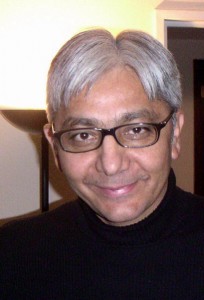 With my three decades of international consulting as an aviation engineer in America and Europe, and since 2009 as a peace diplomat for the US Departments of State and Defense, I’m even more committed to peace-building efforts for the international community. What motivates me?
With my three decades of international consulting as an aviation engineer in America and Europe, and since 2009 as a peace diplomat for the US Departments of State and Defense, I’m even more committed to peace-building efforts for the international community. What motivates me?
Every individual is born with unique opportunities to serve the world as best they can. In my case, I was born in Afghanistan during the latter part of its Golden Age, 1930 to the mid-1970s. But who knew of this Golden Era, generated by my family’s Mohammadzai clan? Few today do, given the barrage of atrocities afflicting war-torn Afghanistan.
I left Afghanistan in November 1976 and never set foot there again until thirty years later as an American citizen. What I saw and experienced broke my heart, especially having grown up with a happy childhood in Kabul, the capital city.
A keen observer as both an engineer and a citizen of the world deeply involved in current affairs, I was impelled to write this memoir from the collection of missives I penned home to family and friends during two deployments in Afghanistan for the State Department (2009–2011) in Book 1 and Department of Defense (2012–2013) in Book 2.
My destiny is double-edged. It’s a blessing to be able to serve in Afghanistan’s reconstruction efforts and in building peace bridges between Americans and Afghans. My goal with this book is to convey a sense of what it takes for thousands of Americans performing their daily jobs in Afghanistan amid the myriad challenges and the mayhem facing them in a war zone.
I’m also coming full circle to briefly update the history of Afghanistan and of my family, the Mohammadzais. Originally from the southern region of Kandahar, my forebears left for Kabul to help govern Afghanistan over a hundred and fifty years ago. My father sacrificed family life to serve as brigade commander to protect the country’s eastern border with Pakistan in the early 1960s, while our family remained in Kabul.
Half a century later, I returned as a civilian on behalf of my adopted country—similarly striving to bring peace to Afghans five decades after my father’s and others’ efforts. This was inevitable, as I was shaped during my early years living in Afghanistan. Sardar is the aristocratic title of our family clan. More significantly, the Mohammadzais were, together with other Afghans of various ethnic and tribal backgrounds, responsible for Afghanistan’s Golden Age. Our family tree is included in the appendix.
I’m humbled and honored to have received numerous certificates of appreciation from the Afghanistan government in 2011 as well as awards from my government and NATO. They include the US Department of State’s Superior Honor Award for “extraordinary contribution to the US effort to bring peace and prosperity to the people of Afghanistan,” 2010; the US Department of State’s Expeditionary Service Award “in grateful recognition of committed service in reconstruction, stability and peace in Afghanistan,” 2011; the US Department of Defense’s Joint Meritorious Civilian Service Award: “distinguished himself for exceptionally meritorious service as a Senior Advisor to Force Reintegration Cell, ISAF. Utilizing his fluent language and keen cultural skills, he formed strong bonds with Afghan senior politicians and provincial elders, which led to over 2,000 joint reintegration programs,” 2013; and the NATO Non-Article 5 Medal for service to the International Security and Assistance Force (ISAF) Operation, 2013.

